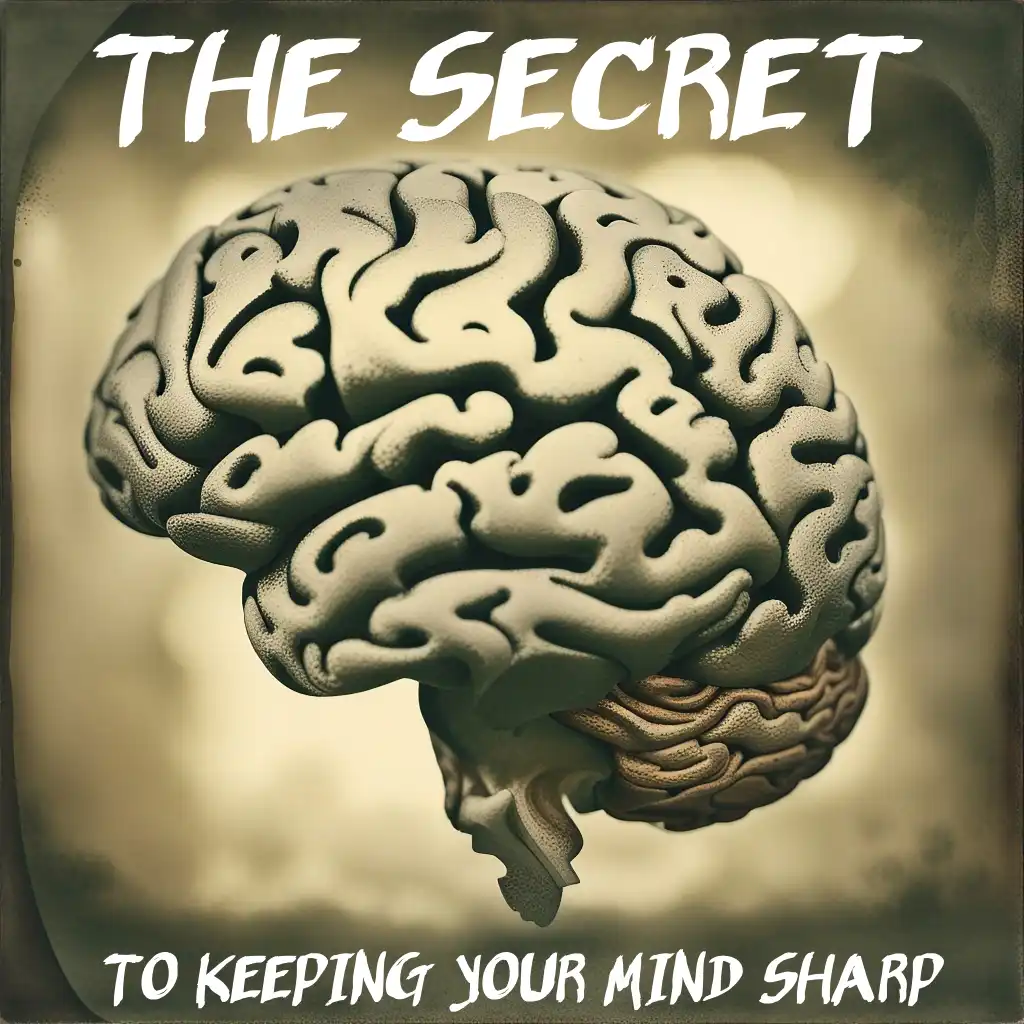How can I stay mentally active after retirement?
Table of Contents
Introduction

How can I stay mentally active after retirement is a question a lot of retirees wonder about. Are you also wondering how to keep your mind sharp and engaged after retiring? Research shows that remaining mentally active is crucial for cognitive health in retirement. This article offers practical tips and activities to help maintain your mental agility, from daily brain exercises to maintaining social connections.
Ready to boost your brainpower in retirement? Let’s dive in!
Key Takeaways about the question: How can I stay mentally active after retirement?
- Regular physical exercise, volunteering, and continuously learning can help maintain mental agility and cognitive health during retirement.
- Maintaining social connections is crucial for mental well-being and can lower the risk of cognitive decline.
- Engaging in word puzzles, jigsaw puzzles, and taking up new hobbies or classes can provide cognitive challenges and stimulate the brain.
- Prioritizing a healthy diet and regular exercise are essential for preserving cognitive function in retirement.
Ways to Stay Mentally Active After Retirement
Stay physically fit through regular exercise to keep your brain working well after retirement.
Stay physically fit through exercise
Regular physical activity does more than just keep your body in shape; it also stimulates brain function and helps in maintaining mental acuity during retirement. Exercise promotes blood flow, ensuring nutrients circulate effectively throughout the body, including the brain.
This process facilitates quicker thinking and faster processing of information. It’s not about ranking first in a marathon or lifting heavy weights, but rather engaging in activities that you enjoy like walking, swimming, or even gardening.
Each offers an excellent way to stay fit while keeping your mind active and sharp. After all, a healthier body leads to a healthier mind.
Volunteer for mental stimulation
Volunteering is a fantastic way to stay mentally active after retirement. Not only does it provide an opportunity to give back to the community, but it also offers mental stimulation and engagement.
When you volunteer, you are constantly learning new things and challenging your brain. Whether it’s working at a local food bank or tutoring students, volunteering keeps your mind sharp by providing new experiences and fostering a sense of purpose.
It can also help improve cognitive functions such as memory retention and problem-solving skills. So why not make a difference in the lives of others while keeping your mind active? Find a cause or organization that aligns with your interests and get involved today!
Continuously learn and expand your knowledge
Staying mentally active after retirement involves continuously learning and expanding your knowledge. Research has shown that engaging in intellectual pursuits, such as reading books, taking up new hobbies or classes, and pursuing lifelong learning, can help maintain cognitive health in retirement.
By challenging yourself with new information and experiences, you are stimulating your brain and promoting mental acuity. Learning something new also helps to create neural connections in the brain, which enhances memory retention and overall cognitive function.
So, whether it’s picking up a musical instrument or exploring a subject of interest, continuing to learn is key to keeping your mind sharp and engaged throughout retirement.
Get enough sleep for optimum brain function
Getting enough sleep is crucial for maintaining optimum brain function in retirement. Sleep allows the brain to rest and rejuvenate, helping to improve memory retention and overall cognitive performance.
Research shows that lack of sleep can lead to impaired attention, decreased focus, and reduced problem-solving abilities. By prioritizing good sleep hygiene, retirees can support their mental acuity and ensure a sharper mind throughout their golden years.
It is recommended for adults over 65 years old to get between 7-8 hours of sleep per night to promote healthy brain function.
Manage stress levels to avoid cognitive decline
Stress can have a negative impact on cognitive function, so it’s important to manage stress levels in retirement. Here are some ways to do that:
- Practice relaxation techniques such as deep breathing, meditation, or yoga.
- Engage in activities that bring you joy and help you relax, such as reading, listening to music, or spending time in nature.
- Maintain a healthy work-life balance by setting boundaries and prioritizing self-care.
- Stay socially connected with friends and family, as social support can help alleviate stress.
- Engage in regular physical exercise, as it releases endorphins that reduce stress and improve mood.
- Consider seeking professional help if stress becomes overwhelming or persistent.
Importance of Social Connection After Retirement
Maintaining social connections is vital for mental well-being during retirement.
Playing with grandkids for mental engagement
Playing with grandkids is not only a joyful way to spend time, but it can also provide mental engagement for retirees. Interacting with grandchildren stimulates the mind and promotes cognitive health.
Whether it’s playing games, reading together, or engaging in creative activities, these interactions require mental agility and problem-solving skills. This can help keep the brain active and sharp during retirement years.
Additionally, spending time with grandchildren provides an opportunity for social connection, which is vital for emotional well-being and overall cognitive maintenance.
Staying involved in a creative hobby for mental stimulation
Engaging in a creative hobby is an excellent way to stay mentally active after retirement. By pursuing activities such as painting, gardening, or crafting, you are giving your brain the opportunity to be stimulated and challenged.
The act of creating something not only provides a sense of accomplishment but also requires problem-solving skills and critical thinking. This mental engagement helps maintain cognitive health and can even improve memory retention.
Whether it’s knitting a sweater or sculpting clay, finding a creative outlet keeps your mind sharp and fosters emotional well-being during this exciting phase of life.
Maintaining social connections for mental well-being
Staying socially connected is crucial for maintaining mental well-being during retirement. Interacting with others, whether it’s through spending time with family and friends or joining social clubs and organizations, provides valuable cognitive stimulation and emotional support.
Research has shown that strong social connections can help lower the risk of cognitive decline and improve overall brain function. By staying engaged in conversations, sharing experiences, and participating in group activities, retirees can keep their minds active and challenged.
Additionally, maintaining social connections helps combat feelings of isolation or loneliness which can have a negative impact on mental health. So make an effort to connect with loved ones regularly and seek out opportunities to engage in social activities to promote your mental well-being during retirement.
Mental Stimulation Activities for Retirees
Engage in word puzzles to exercise the brain and keep it sharp.
Doing word puzzles to exercise the brain
Engaging in word puzzles is an excellent way to exercise the brain and keep it sharp during retirement. Crossword puzzles, word searches, and Sudoku are all great options that challenge your cognitive abilities and promote mental agility.
These activities require you to think critically, problem-solve, and use language skills, stimulating different areas of the brain. Regularly engaging in these exercises can help improve memory retention, enhance focus and concentration, as well as boost overall mental acuity.
So grab a pen or open up a puzzle app – it’s time to give your mind a workout!
Engaging in jigsaw puzzles for cognitive challenges
Engaging in jigsaw puzzles can be a fantastic way for retirees to keep their minds sharp and engaged. These puzzles offer cognitive challenges that encourage problem-solving, visual-spatial skills, and logical thinking.
As you piece together the puzzle, your brain is actively working to recognize patterns, remember shapes and colors, and make connections between different pieces. This mental exercise helps stimulate your brain’s neural pathways, improving memory retention and boosting overall cognitive function.
By regularly engaging in jigsaw puzzles, retirees can not only have fun but also maintain mental acuity and promote a healthy mind throughout retirement.
Taking up a new hobby or class to learn new skills
- Find a hobby or class that interests you and challenges your mind.
- Learning something new stimulates the brain and keeps it active.
- It can be anything from painting, playing a musical instrument, gardening, or even learning a new language.
- Trying out different hobbies or classes allows you to explore new interests and discover hidden talents.
- Learning new skills helps improve memory retention and cognitive function.
- It also provides a sense of accomplishment and boosts self-confidence.
- Trying out different activities keeps your brain engaged and prevents it from becoming stagnant.
- Learning new skills can open up opportunities for social interaction and networking with like-minded individuals.
- It is never too late to start learning, so why not embrace retirement as an opportunity to expand your knowledge and sharpen your mind.
Prioritizing Health for Mental Sharpness
Maintaining a healthy diet and engaging in regular exercise are essential for preserving cognitive function in retirement. Don’t miss out on the key strategies to keep your mind sharp after retirement – read more to discover these important health tips!
Maintaining a healthy diet for brain health
A healthy diet plays a crucial role in maintaining brain health during retirement. Research has shown that adopting a Mediterranean-style diet, rich in fruits, vegetables, whole grains, lean proteins, and healthy fats, can support cognitive function and reduce the risk of cognitive decline.
This type of diet promotes blood flow and nutrient circulation to the brain, providing it with essential vitamins and minerals needed for optimal functioning. By prioritizing nutritious foods like fish high in omega-3 fatty acids, berries loaded with antioxidants, and nuts packed with beneficial nutrients, retirees can nourish their brains and support memory retention.
Incorporating a variety of colorful fruits and vegetables also provides important antioxidants that help protect against age-related damage to brain cells. So by making smart choices when it comes to what we eat post-retirement, we are giving our brains the fuel they need to stay sharp for years to come.
Engaging in regular exercise for cognitive benefits
Regular exercise is not just important for physical health, but it also has significant cognitive benefits for retirees. Engaging in physical activity increases blood flow to the brain, which promotes nutrient circulation and supports the growth of new brain cells.
Studies have shown that regular exercise can improve memory retention, increase mental acuity, and enhance overall cognitive function. By incorporating activities like walking, swimming, or even dancing into your daily routine, you can stimulate your mind and maintain mental sharpness well into retirement.
So lace up those sneakers and get moving to keep both your body and mind healthy!
Seeking mental stimulation through books, music, or art
Engaging in activities that involve books, music, or art can provide a great source of mental stimulation during retirement. Reading books helps keep the mind active by challenging cognitive skills such as memory retention and critical thinking.
Music has been shown to have positive effects on brain function, improving mood and enhancing concentration. Additionally, exploring various forms of art, such as painting or pottery, allows for self-expression and creative thinking.
These intellectual pursuits not only provide enjoyment but also help maintain an active brain function and promote overall cognitive maintenance. So pick up a book, play your favorite tunes, or try your hand at a new artistic endeavor to stimulate your mind after retirement.
Getting regular check-ups and addressing health concerns promptly
Regular check-ups with your healthcare provider are an essential part of maintaining your overall health and well-being during retirement. Here’s why it’s important to get regular check-ups and address any health concerns promptly:
- Early detection of potential health issues: Regular check-ups can help identify any potential health problems early on, giving you a better chance of successful treatment and management. This includes monitoring cholesterol levels, blood pressure, blood sugar levels, and other vital signs that can indicate underlying issues.
- Preventive care: Your healthcare provider can provide important preventive care measures such as vaccinations, cancer screenings, and lifestyle counseling. These proactive measures can help prevent diseases or catch them in their early stages when they are most treatable.
- Management of existing conditions: If you have ongoing health conditions such as diabetes, heart disease, or arthritis, regular check-ups allow your healthcare provider to monitor your condition and make necessary adjustments to your treatment plan.
- Medication management: Your healthcare provider can review the medications you are taking to ensure they are still appropriate for your needs. They can also identify any potential drug interactions or side effects that may be impacting your cognitive function.
- Mental health assessment: Regular check-ups provide an opportunity for your healthcare provider to assess your mental health as well. They can screen for conditions such as depression or anxiety that may affect cognitive function and overall well-being.
- Lifestyle guidance: Your healthcare provider can offer guidance on healthy lifestyle choices such as diet, exercise, stress management, and sleep hygiene. These factors play a significant role in maintaining cognitive function and mental sharpness in retirement.
Conclusion
In conclusion, staying mentally active after retirement is essential for maintaining cognitive health and overall well-being. By incorporating physical exercise, volunteering, continuously learning, managing stress levels, and prioritizing social connections, retirees can keep their minds sharp and engaged.
Additionally, engaging in mental stimulation activities such as word puzzles and jigsaw puzzles can provide cognitive challenges. Prioritizing health through a healthy diet, regular exercise, and seeking mental stimulation through books or art also contribute to maintaining mental acuity during retirement.
Ultimately, staying mentally active allows retirees to live fulfilling and enriching lives even after leaving the workforce.
Frequently Asked Questions
1. What are some retirement activities or hobbies that can help me stay mentally active after retirement?
Engaging in activities such as reading, puzzles, learning a new skill or language, volunteering, and socializing with friends and family can all help keep your mind sharp and active after retirement.
2. How important is physical exercise for maintaining mental acuity after retirement?
Physical exercise is crucial for maintaining mental acuity after retirement. Regular physical activity boosts blood flow to the brain, promotes neuroplasticity, reduces the risk of cognitive decline and improves overall mental well-being.
3. Are there any online platforms or resources specifically designed for keeping retirees mentally active?
Yes, there are several online platforms and resources available specifically designed for retirees to stay mentally active. These include websites offering brain training games, online courses on various subjects, virtual book clubs, and forums for engaging in discussions with like-minded individuals.
4. How can staying socially connected contribute to mental agility during retirement?
Staying socially connected is vital for maintaining mental agility during retirement. Engaging in regular social interactions helps reduce feelings of isolation or loneliness which can negatively impact cognitive function. Socializing also provides opportunities for intellectual stimulation through conversations, debates, and exchanging ideas with others.



Pingback: Discover Life After Retirement 2023: Thriving Tips & Stories